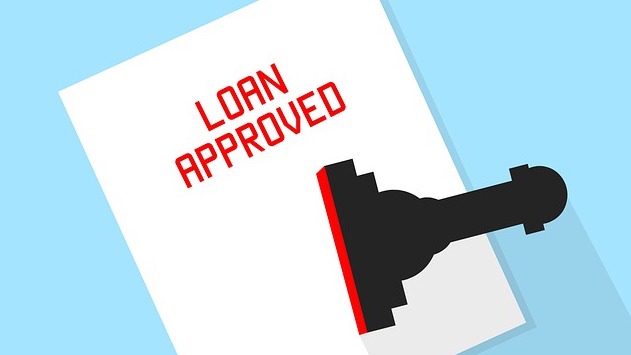In our last article we discussed various types of business loans, and gave capital advice, that might be useful for your small business. We also spent some time talking about start up business loans.
We discussed the importance of having a financial plan and of giving yourself and your business plenty of time to grow slowly and steadily, instead of feeling the need to scale as fast as possible. This is just the tip of the iceberg though, when it comes to startup business loans. This article is devoted entirely to a discussion of startup business loans.
As such, we will review:
- when and why your small business might need startup loan
- the different types of loans to consider
- how to choose the right loan for you and your business
Basics on Start Up Business Loans
First and foremost, it is common knowledge that starting a business is very hard work. And one of the hardest parts about it is finding capital. Even if you are going into your new business with savings and decent credit history, you are still likely to run into fairly significant financial roadblocks without the help of business loans.
And unfortunately, lending money to a new business is considered much riskier than lending money to an established business. Hence, financial assistance can be even harder to come by for startup small businesses. But luckily, there are funding options. So many, in fact, that you may need some help sorting through them, which is what we’ll do today.
According to the Small Business Administration (SBA), only about:
- 20% of new businesses don’t make it past their first year of operation
- half survive past five years
- 1/3 make it to ten years of operation
Although at first glance, these statistics may be staggering. But the good news is that there are some very doable steps you can take to put yourself and your business in the 1/3 of businesses that make it to ten years camp.
The number one reason that small businesses fail is not just due to a lack of cash, it is due to a lack of financial planning.
Let’s spend some time discussing what to typically expect from small start up business loans, plus their advantages and disadvantages. Also, we’ll cover other financing options to look into when you start a business.
Using all of this information, small business owners should be able to successfully construct the financial side of their business plan.
The Components of Start Up Loans
So first, let’s delve into what small business startup loans look like. The point of startup loans is to give new businesses enough working capital to get their feet on the ground.
Obviously, this can mean vastly different things for different businesses, so the loan amounts vary accordingly. Startup business loan amounts can land anywhere from $500 to $750,000. Getting a loan on the higher end of that spectrum is typically much more difficult than getting a loan on the lower end, though.
If you are attempting to secure a six-figure startup loan, you will likely need to provide a detailed and well-thought-out business and financial plan, as well as good personal credit scores.
You will also want to go into your meetings with the lender ready to answer all sorts of questions. These might include:
- how you will spend the money
- when you plan to be making enough money to be in the black
- why you deserve the loan
This is all very useful information to have prepared even if you are seeking out a comparatively smaller startup loan as well. It will benefit you and your business to have a detailed plan, good personal financial history, and ideas of the future of your business. Yet, it will also help make you a more competitive loan candidate, and maybe even qualify you for a larger loan amount than you thought you would get.
In addition, the length of startup business loans can also vary a fair amount — they typically last anywhere from one to five years.
Should You Get a Start up Business Loan?
Now that we have provided an overview of what small business startup loans look like, let’s review why you might consider pursuing one — or not.
As discussed in our last article regarding business loans, probably the biggest advantage to getting a loan for small business owners is that you still maintain total control over your business. The lender, unlike other funding options such as venture capital, will not gain any ownership over your business and will not have any say-so in your business and financial decisions.
Another – less thought about – advantage to getting a startup loan is that, if you pay it back on time, you will improve your business credit rating. Be wary of this advantage though, depending on the interest rate you receive paying back your business loan can be harder than you might think. And you don’t want to get stuck in a situation where you cannot afford to pay it back.
Some disadvantages
This is a good segue into our discussion of the potential disadvantages of small business startup loans. As referenced above, you want to be extremely wary of loans with suspiciously high interest rates.
Startup businesses will likely have to pay higher interest rates than more established businesses, but you have to draw the line somewhere. Many online lenders make it so easy to get business loans that it can be easy to overlook the details of the loan. Make sure that you carefully review your potential loan’s interest rate and other important details so that you know what you are getting yourself into.
Additionally, some loans will require collateral; depending on the loan amount this could be something as significant as having to sign over your house or other real estate if your business fails.
Loans for startup businesses almost always need to be personally guaranteed as well. This does not make them personal loans, it means that you, the business owner, will be liable for all debts and fees if you default on your loan.
Types of Small Business Start up Loans
Clearly, there is a lot to think about when it comes to startup business loans. We will devote the remainder of this article to delving into several different types of startup loans that you and your business may want to consider.
There are many different factors that go into choosing which startup business loan is right for you. Some of these include your personal financial situation, your business goals, how quickly you want your business to grow, and so much more. We at Saddock Financial Partners want you to have as much information as possible going into the process.
Business credit cards
One of the more common forms of small business start up loans comes in the form of business credit cards. Not only do business credit cards provide businesses with startup capital and cash flow, but they also allow startup businesses the opportunity to establish business credit. Business credit cards can also be key to beginning to create the divide between your personal finances and credit history and your business finances and credit history.
There is a catch, though — to qualify for a business credit card, most startup business owners will have to prove that they have reliable personal credit scores and income. Business credit cards can be appealing in that they usually do not require collateral and often offer attractive rewards and sign-up bonuses. They do, however, usually require a personal guarantee.
SBA loans
Another frequently sought-after form of small business start up loans is Small Business Administration (SBA) loans. It is important to first understand that typically the SBA guarantees loans from individual lenders, instead of originating the loans themselves. One of the most desired types of SBA loans is the 7(a) loan program, which offers loan amounts of up to $5 million.
During the 2020 fiscal year, the SBA 7(a) loan program allocated 17% of its funds to startup businesses. This is because the SBA loan process, especially the 7(a) process, is highly competitive. The SBA requires good credit history, and generally prefers to give loans out to small businesses that have substantial experience in their certified industry.
SBA loans are highly desirable if you can get them, but you want to be sure that you are competitive before devoting too much time to the SBA loan application process.
Other options
There are many other financing options for startup businesses.
Some small business owners have extensive friend and family connections that will provide them with initial cashflow.
Others elect to seek out angel investors who are interested in their business plan and are willing to contribute to their startup funds.
Some use crowdfunding platforms like Kickstarter to pitch their story and their business to the public.
What’s important is: the various funding and loan opportunities will work better for different small business startups, for their own unique reasons. There is no magic formula and there is no one-size-fits-all approach. This is why it’s best to get advice from experts who help businesses each day.
We Can Help
We are here to discuss with you the best options for you and your business, and make sure you are as prepared as possible to get the loans you need to succeed.
Get in touch with us here to find out how we can help your specific business financial needs.
Sources:
https://lendza.com/startup-loan


